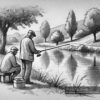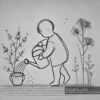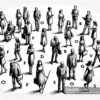probably meaning
probably :
likely, possibly
adverb
▪ It will probably rain today.
▪ It is likely to rain today.
▪ She will probably arrive by 5 PM.
▪ She is likely to arrive by 5 PM.
paraphrasing
▪ likely – probably
▪ possibly – maybe
▪ perhaps – maybe
▪ maybe – possibly

Pronunciation
probably [ˈprɒb.ə.bli]
The stress is on 'prob' and sounds like 'prob-uh-blee'.
Common phrases and grammar about probably
probably - Common meaning
adverb
likely, possibly
Part of Speech Changes for "probably"
▪ probability (noun) – the chance of something happening
▪ probable (adjective) – likely to happen or be true
Common Expressions with "probably"
▪ probably not – likely not
▪ probably will – likely will
▪ probably can – likely can
▪ probably have – likely have
Important examples of probably in TOEIC
Vocabulary examples from the TOEIC test
In TOEIC vocabulary questions, probably is used to indicate likelihood or certainty.
Example of a confusing word: properly (correctly)
Grammar examples from the TOEIC test
In TOEIC grammar questions, probably is used as an adverb modifying verbs, adjectives, or other adverbs.
probably
Idioms and fixed expressions in TOEIC
probably not
'likely not', used to express doubt or uncertainty.
It is probably not necessary to bring extra supplies.
Differences between similar words and probably
probably
,
likely
differences
'probably' indicates a higher likelihood than 'possibly'.
Words with the same origin as probably
The origin of probably
The word ‘probably’ comes from the adjective 'probable', meaning 'likely to happen'.
Word structure
It is composed of 'probable' and 'ly', making it an adverb meaning 'in a probable manner'.
Words with the same origin
The root of 'probably' is 'prob', found in words like 'probability', 'probable'.






